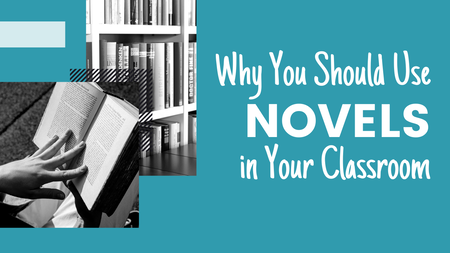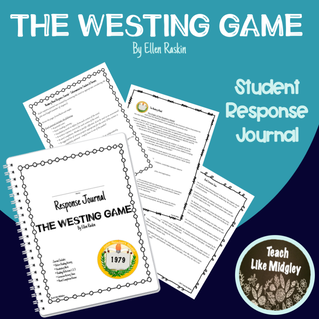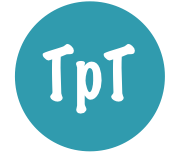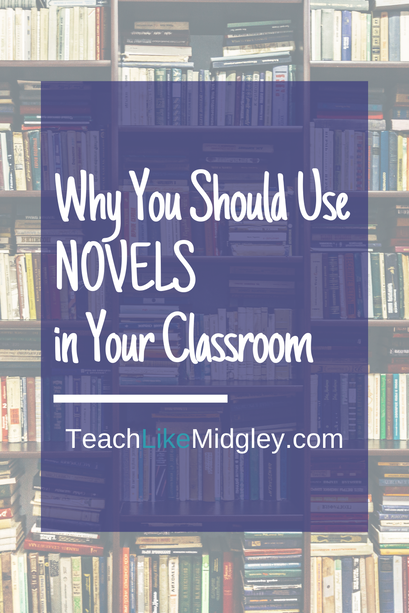Why You Should Use
Novels in Your Classroom
One of the most valuable skills your students have is knowing how to READ. The power and knowledge of how to read, translates to our ability to learn anything our heart desires. Studies have shown that reading makes us healthier, smarter, and more empathetic.
Reading requires patience, diligence, and determination. Reading is more than scanning headlines and scrolling through newsfeeds. Attempting to learn through incomplete, fragmented captions is lazy, and not going to make much cognitive difference. While informational texts can teach us about various topics and how to complete numerous tasks, the novels and narratives, however, are where the empathetic learning truly takes place. Studies show that immersion into settings and stories not only helps with fluid intelligence but also reading comprehension and emotional intelligence as well. You make smarter choices for yourself and those around you.
So which novels should your students be reading? Naturally, you would encourage students to read novels that are related to their interests. True stories, bibliographies, historical fiction, to name a few. But when you are looking at your options, trying to choose for your classroom, it can be difficult to feel confident in your decision.
When I taught self-contained, I used novels to teach my students. The novels I chose for my students were Newbery Award winners, which means they were considered distinguished by the American Library Association.
I would start the school year with all the novels I had available for my students to read throughout the course of the school year. Our class would have a book walk, where the students could walk around the classroom browsing the novels and reading their covers. At the end of the book walk, I asked students to give my their top 10 list of novels that they were most interested to read - my goal was 2 novels per quarter, each was on a 4 week rotation.
From these lists I would form my literature circles and group students according to their interests. I would usually have 3 or 4 novels being read by the class at a time.
Here's what teaching with novels looked like in my classroom:
Week One
Students got their new books and their accompanying response journals. They began with completing the Before Reading Activity from their journals. The novel was divided into 3 sections. Students were to read section one and complete Vocabulary One and Reflection One from their journals by Monday.
Week Two
It was expected students finished reading section one of their novel and the accompanying Vocabulary and Reflection One by Monday, when I collected them. I also met with each literature circle during this time to discuss the novel with students and allowed them to discuss with each other. I always graded the Before Reading Activity, Vocabulary One, and Reflection One right away and returned them the next day.
Students were then assigned to read section two and complete Vocabulary Two and Reflection Two from their journals by the following Monday.
Week Three
This was a repeat of week two, but the discussion was of course, the second section of the book.
Students were then assigned to read section three and complete Vocabulary Three and Reflection Three from their journals by the following Monday.
Week Four
After we concluded our final discussion on the novels, students would choose a project to complete that correlated to the novel. Some novels had specific projects to choose from, while there were also projects that could accommodate any novel.
Students worked to complete their project during week four, which we concluded with a short novel test.
This system worked well for me in my classroom. I provided students structured choice by giving them a voice in which novels they would be reading throughout the course of the school year. However, one of the best Newbery Novels - at least in my opinion - is The Westing Game by Ellen Raskin. I always saved it for last. The story is a murder mystery, much like the board game, Clue. I used it as a read-aloud, and had my students keep a running notebook of clues and guesses over who they thought was guilty of murder. I found it to be a great management tool at the end of the school year, as my students were always anxiously awaiting for me to read the next chapter! None of my students were ever disappointed with this novel - at least, they never told me if they were!
If you're interested...Several of my novel study Student Response Journals are available at my TPT store!
|
You Might Also Like...
Let's Connect...

Welcome! I'm Hillary Midgley, a veteran 6th grade teacher.
I create educational materials and develop curriculum for other teachers. I specialize in teaching students how to learn through my Study Skills Curriculum. I have established fundamental classroom systems and structures for teachers to help them streamline their classroom. And my passion is teaching ancient history through engaging activities with foundations in academic skills. Here you will find resources on all of these topics and more. Learn more about me here.
|







